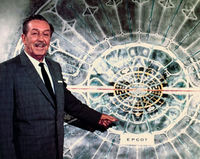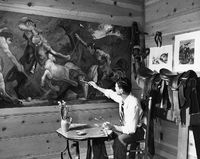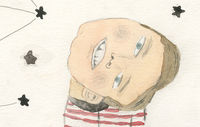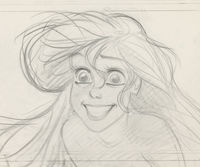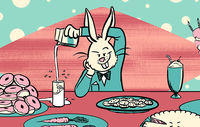Step behind the lens and take a peek into the lights, camera, and glamour of the golden age of Hollywood with the newest exhibition from The Walt Disney Family Museum. Lights! Camera! Glamour! The Photography of George Hurrell brings together a selection of rare, vintage prints from George Edward...
"Tomorrow is a heck of a thing to keep up with.” —Walt Disney
The Walt Disney Family Museum is proud to announce its next exhibition, Tomorrowland: Walt’s Vision for Today, on view from July 22 through December 7, 2015. Guest-curated by Academy Award®-winning director, writer, and producer Brad...
The Walt Disney Family Museum is pleased to present Mel Shaw: An Animator on Horseback. Open from January 13 to September 12, 2016, this exhibition is the first-ever retrospective of the life and work of Disney Legend Mel Shaw (1914–2012)—an artist and storyteller whose skills were in demand by the...
Transformations is a juried exhibition featuring the dynamic work of artists from three of the Bay Area’s distinguished programs for artists with disabilities: Abilities United, The Arc San Francisco, and NIAD Art Center.
Inktober is a special time of the year for artists, where every day during the month of October participants create and post original artwork onto social media using only ink as their medium. This class will have you create your own Inktober piece, provide helpful lessons about committing to your initial designs and creative instincts, and allow you to experiment with various drawing tools.
When production began on Alice in Wonderland (1951) in 1946, Walt instantly knew he needed to capture the eccentric lunacy of Wonderland and its residents. He quickly enlisted one of his Nine Old Men, Ward Kimball, for the project. With Ward’s ability to effortlessly make the unreal real, he animated a range of quirky characters, whose bizarre mannerisms added to their unique personalities.
When production began on Alice in Wonderland (1951) in 1946, Walt instantly knew he needed to capture the eccentric lunacy of Wonderland and its residents. He quickly enlisted one of his Nine Old Men, Ward Kimball, for the project. With Ward’s ability to effortlessly make the unreal real, he animated a range of quirky characters, whose bizarre mannerisms added to their unique personalities.
In 1961, One Hundred and One Dalmatians became the first Disney film to use a new process in animation called Xerography. This new technique allowed for exact reproductions of the animators’ original drawings onto cels, instead of tracing them in ink. Ultimately, this technique also was responsible for the film’s extraordinary look. Experiment with the process of xerography in this hands-on workshop, by creating a caricature of yourself and a pet.


